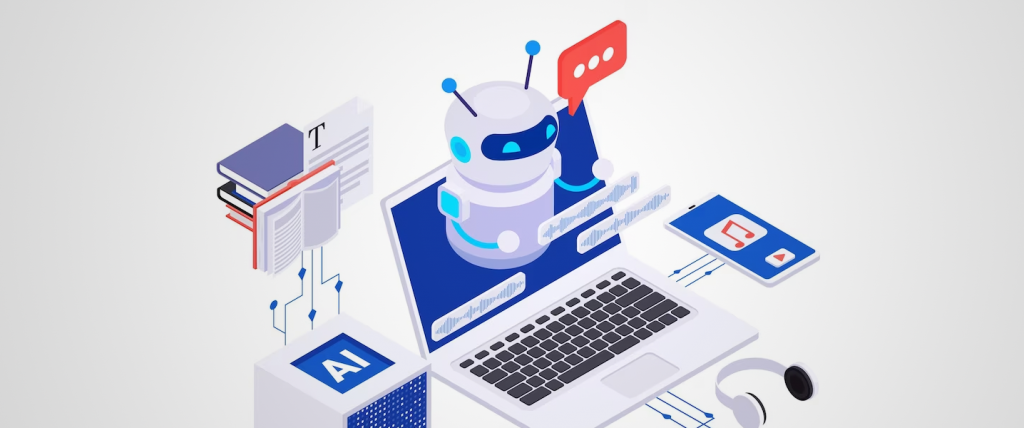Insights
Artificial intelligence: Charting its way forward in a digital India
December 10, 2024The origins of artificial intelligence can be traced back to ancient philosophical inquiries concerning life and mortality. The creation of mechanical devices, known as “automatons”, marked an early attempt to replicate autonomous functionality. Derived from the ancient Greek term meaning “acting of one’s own will”, automatons exemplified early human endeavors to construct mechanisms capable of independent operation.

Historical records from approximately 400 BCE document a mechanical pigeon attributed to an associate of the philosopher Plato, representing one of the earliest instances of such innovation. Centuries later, Leonardo da Vinci’s creation of a renowned automaton in 1495 further illustrates the enduring interest in developing self-operating machines.
Read More+
The progression toward contemporary AI cannot be attributed to a singular event but is instead the cumulative result of significant milestones throughout human history. These foundational developments have collectively contributed to the conceptual and technological advancements underpinning modern artificial intelligence.
The AI Race: Who is Ahead and Who is Behind?
The global pursuit of the leading position in artificial intelligence (AI) presents a compelling dynamic, with each nation contributing distinct strengths to the evolving landscape. According to Stanford’s Global Vibrancy Tool, while the United States currently maintains this position, other nations, including China, France, and South Korea, are making considerable advancements, rendering the future trajectory of AI both dynamic and uncertain.
The United States’ pre-eminence in this field can be attributed to a robust ecosystem characterized by research institutions, technological corporations, and a dynamic entrepreneurial environment.
Where does India stand?
In India, recent initiatives underscore the government’s commitment to fostering AI infrastructure, promoting innovation, and enhancing inclusivity. India has the potential to add US $359 billion to US $438 billion to its GDP on account of Gen AI adoption in 2029-30 over and above its baseline estimates. This represents an additional 5.9% to 7.2% of GDP in 2029-30. According to the NASSCOM report titled ‘Ùnlock Value from Data and AI: the India Opportunity’, an integrated data utilization strategy can add up to $500 billion to India’s GDP by 2025. This is nearly 10 percent of the $5 trillion economy ambitions.
NITI Aayog has recognized artificial intelligence (AI) as a transformative technology with the potential to drive significant advancements across various sectors. To promote the widespread adoption and integration of AI in India, it has introduced the initiative under the brand name #AIforAll. In October, speaking at the inauguration of the International Telecommunication Union- World Telecommunication Standardized Assembly and India Mobile Congress, PM Modi made an inclusive call for the establishment of a global framework for the use of digital technology and the ethical use of AI.
His statement comes against the backdrop of the Union Cabinet’s allocation of over INR 551 crores for the IndiaAI mission which will bolster initiatives like the IndiaAI Compute Capacity, IndiaAI Innovation Centre (IAIC), and Safe & Trusted AI, etc. Cumulatively, the funding for cybersecurity and AI innovation has seen a jump of over 84 percent over last year’s Rs 840 crore. Additionally, the Centre of Excellence in AI at the IIT Kharagpur has been given Rs 255 crore for research in AI and machine learning.
Acknowledging AI’s transformative potential, the Hon’ble Finance Minister, in the 2018–2019 budget speech, tasked NITI Aayog with launching the National Program on AI to steer research and development in emerging technologies. In pursuance of the same, NITI Aayog has adopted a three-pronged approach – undertaking exploratory proof-of-concept AI projects in various areas, crafting a national strategy for building a vibrant AI ecosystem in India and collaborating with various experts and stakeholders. Furthermore, several committees have been instituted to deliver reports on AI development, safety, and ethical concerns.
The Five-Year Progress
In February 2021, an approach paper titled- Principles for Responsible AI- was published by NITI Aayog, examining the different ethical issues surrounding the implementation of AI solutions in India. It is separated into two categories: system concerns revolving around general principles underlying decision-making, beneficiaries’ legitimate inclusion, and accountability of AI judgments and societal considerations primarily addressing how automation affects employment and job development.
Subsequently, in August 2021, NITI Aayog published its second part, Operationalizing Principles for Responsible AI, focussing on operationalizing principles for responsible AI. It deconstructed the steps that both the public and commercial sectors must take in order to address legislative and policy interventions, capacity building, encouraging ethics by design, and developing frameworks for adherence to pertinent AI standards.
Earlier this year, platforms and intermediaries received a due diligence-related advisory from the Ministry of Electronics and Information Technology regarding the implementation and usage of AI algorithms.
These guidelines included (i) prohibiting hosting or sharing of unlawful content; (ii) ascertaining that AI platforms are not facilitative of bias or discrimination; (iii) keeping the users informed about their interaction with AI; and (iv) proper labeling of AI-generated synthetic content.
On global initiatives, India has formed several alliances to foster AI innovation and startups across the world. In 2024, India assumed the lead chairmanship of the Global Partnership on Artificial Intelligence aimed to bridge the gap between AI theory and practice.
Such initiatives by Bharat resonate with its multifaceted approach to AI governance, synergizing its robust domestic strategies with a proactive stance on the global stage.
How is AI shaping the future?
The rise of AI, particularly generative tools like ChatGPT, has sparked widespread debate about its societal impact. While concerns exist, experts like Kai-Fu Lee argue that AI, being neutral, will ultimately have more positive than negative effects.
AI is expected to accelerate drug discovery, streamline organizational processes, and reduce human involvement in hazardous tasks like factory heavy lifting. It could also free people to focus on creativity by automating routine activities.
In the agricultural sector, it can include improvement in crop yield through real-time advisory, advanced detection of pest attacks, and prediction of crop prices to inform sowing practices. AI-driven diagnostics, personalized treatment, early identification of potential pandemics, imaging diagnostics, etc. are a few examples capable of being afforded in healthcare. It can also be an imperative solution for traffic control to reduce congestion and enhance security through improved crowd management.
Generative AI is already being employed in business to create tailored content, build trust, and provide social proof. However, as AI evolves, it will likely affect the workforce, potentially replacing entry-level roles in fields such as bookkeeping, data entry, and customer service.
Despite fears of job displacement, AI is also anticipated to generate entirely new job categories, particularly in data science, machine learning engineering, software development, and industry-specific AI specializations, such as healthcare. Thus, while AI presents challenges, it also offers opportunities for innovation and economic growth.
Policy Recommendations
To advance AI development and adoption in India, identifying a Nodal Agency within the Government for the development of AI would be imperative. This may entail prioritizing resources for sectors that have demonstrable positive economic and social impacts from AI.
Cross-country and intra-country collaborations from the regional level to the grassroots level would foster the sharing and building of localized AI innovative technologies. For public welfare, regular algorithmic impact assessments must be kept in place at all centers building AI for public use. These measures collectively aim to build a robust and inclusive AI ecosystem in India, balancing innovation with accountability and ethical governance.
Conclusion: Are humans ready for AI?
In the end, this post raises the question of whether humanity is prepared for AI or if additional time is needed to get ready for its far-reaching implications. As AI advances, there is a genuine risk that it will surpass humans in intelligence. Humans will become lazy and lose their inventiveness due to the growing reliance on AI as its benefits become more widely available online.
Artificial intelligence data manipulation can impair decision-making and have potential consequences for humans. It is possible for AI to influence the future of political candidates in elections around the globe.
According to a McKinsey Report, between 2016 and 2030, 40% of jobs, or 400 million people, might be replaced by artificial intelligence.
Humans should be concerned about the rapid adoption of AI, which international groups like OpenAI, Amazon, Google, and Microsoft are heralding. Although AI has many advantages, if it is not managed, the losses will eventually outweigh the gains.
This article was originally published in DQ India on 10 Dec 2024 Co-written by: Varun Pathak, Partner and Intisar Aslam is a fourth-year B.A. LL.B. (Hons.) student at the National University of Study and Research in Law, Ranchi. Click here for original article
Read Less-
Disclaimer
This is intended for general information purposes only. The views and opinions expressed in this article are those of the author/authors and does not necessarily reflect the views of the firm.

